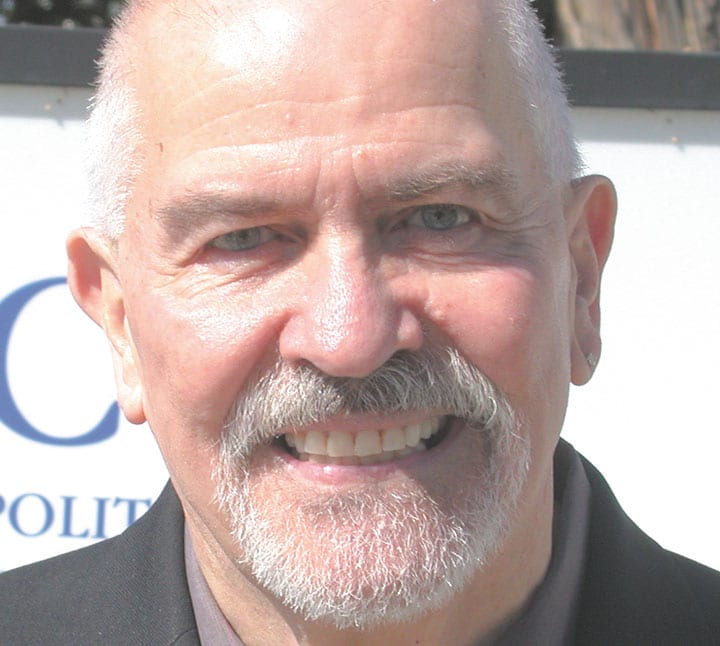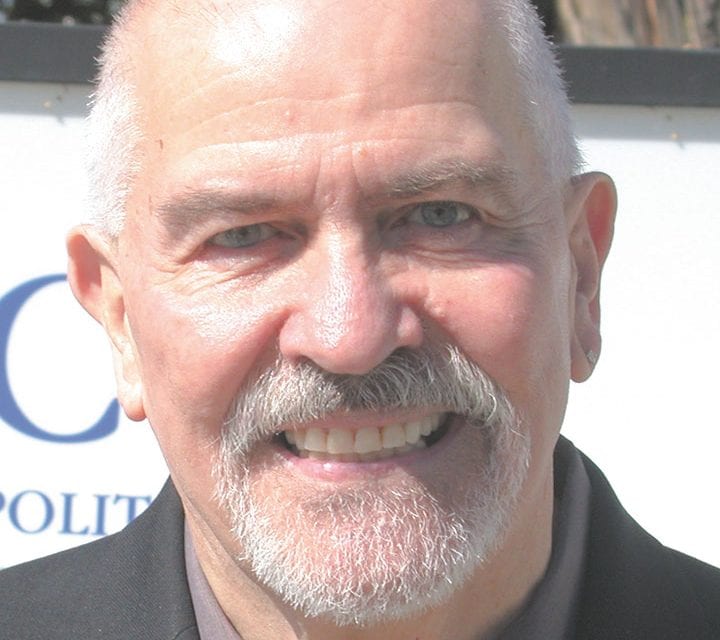MCC was founded on the idea God didn’t create him to hate him

DAVID TAFFET | Senior Staff Writer
taffet@dallasvoice.com
The Rev. Troy Perry promised me he’d give me the short version when I asked him to tell me how he decided to found his own denomination.
During the next two hours, that was about the only question we got to as we compared stories, laughed and cried, and he told me about his colorful life, promising to get to nuns, drug dealers and drug dealing nuns.
But before he began, he warned if I heard a squawking noise, it was “Phillip’s bird who hates it when I’m talking.”
All that is an introduction to one of the most colorful religious leaders of our day — a delightful storyteller who cares passionately about LGBT people.
Perry grew up in Florida and began preaching at age 13 after running away from home. His mother remarried someone who turned out to be an alcoholic after his dad died.
“He beat up my mother,” he said.
He left home after his stepdad abused him mentally and physically and was raped by someone his stepdad identified as his brother but was just someone he had met on a shrimp boat.
He ran to his uncle’s farm in south Georgia.
“I was called to preach,” Perry said. At 13, he said he was encouraged by his Pentecostal family in Georgia.
By the age of 15, the Baptist church licensed him as a pastor. By age 18, Perry began thinking he might be attracted to men, so he spoke to his pastor, who encouraged him to marry.
Perry was married five years, had two kids and moved to Santa Ana, Calif., where he contacted the local bishop who sent him to a church to pastor.
“They liked me,” said Perry.
But Perry visited a local bookstore, saw the physique magazines on the racks and returned to the parsonage with a bag full of books on homosexuality.
His wife wasn’t surprised when he told her he was gay. The books he had been hiding under the mattress clued her in, he said.
The district overseer wasn’t as forgiving. When he told him, “I’m homosexual,” Perry said the church official visibly turned blue.
“Did you molest anyone?” the overseer wanted to know. “This is just a trick of the devil. Pray.”
The next stop was the bishop whose reaction was, “If he thinks he is, then he probably is.”
Despite Perry having tripled the size of the church, the bishop wanted Perry’s resignation and said, “We’ll excommunicate him.” That night, the bishop showed up at Perry’s house and wanted the family out that night.
The family didn’t move that night, but found a place to live and moved in the next few weeks. Perry got divorced and said he didn’t see one of his children for the next 17 years. When he was no longer pastoring nor married, he was drafted at age 25, just weeks before he would have no longer been eligible.
He called the military his finishing school.
“It was wonderful what the military did for me,” he said. “We’re going to teach you to live, not die.”
While stationed in Germany, he visited bars in Holland. He remembered the first time he saw two police officers come in. Perry panicked and asked what was going to happen. He didn’t quite understand at first when he was told, “They just came in for a beer.”
When he returned to the U.S., he met Willy Smith and he went to a church. The first week, he was welcomed. The second Sunday, he preached. The third visit, they asked about him. When Perry was honest, they shut him out.
He tried to commit suicide.
“Willy busted the door down,” Perry said. “I slit my wrist in the tub.”
After he was sewn up in the hospital and talked to a doctor who threatened to commit him, Willy took him home. He realized he was going to be OK.
“God spoke to me in the still small voice,” he said. “God loves me. I was Christian and a gay man. If God loves me, God loves other homosexuals. I don’t owe apologies to anyone.”
He took out an ad with his home address and his real name. That Sunday, 12 people showed up and that’s where Metropolitan Community Church began — in his living room in the apartment he shared with Smith in Los Angeles.
To start a church, he said it was simple. “Tell them where you are, who you are and what you believe.”
He explained, “God didn’t create me to have something to hate.”
Not only did Christians attend Perry’s new church, but a number of Jews did as well. While Perry’s work is responsible for creating MCC churches around the world, he also inspired the creation of a number of synagogues, including Congregation Beth El Binah in Dallas.
Although he always welcomed his Jewish members, Perry spoke to several and suggested they might be more comfortable in a gay synagogue rather than a church. He encouraged them to form Beth Chayim Chadashim (Hebrew for House of New Lives) in Los Angeles, better known as BCC. And when a Dallas congregation began to form, BCC was there with suggestions, prayerbooks and bylaws that helped the local group become a sanctioned synagogue.
Perry’s other Dallas connection is his relationship with the Rev. Neil Cazares-Thomas, senior pastor of Cathedral of Hope.
His history with the cathedral’s current pastor goes back to when Cazares-Thomas was 16 at the MCC church in London.
Cazares-Thomas later became the London church’s pastor.
“He put our church on the map in London,” Perry said.
When Perry retired from his own Los Angeles pulpit, Cazares-Thomas stepped in as the new pastor. So for a number of years, Cazares-Thomas served as Perry’s pastor.
When Cathedral of Hope broke away from MCC about 10 years ago, that created a hurt that Perry doesn’t discuss other than to say his visit to Dallas to see his own former pastor and speak from the pulpit brings healing.
“Neil wanted it to come full circle,” Perry said.
Perry just celebrated his 32nd anniversary with his husband Phillip, and next year, Metropolitan Community Church celebrates its 50th anniversary.
On Saturday, July 29, Cathedral of Hope holds a reception for Perry from 7–9 p.m. On Sunday, Perry is the guest preacher at the 11 a.m. service.
This article appeared in the Dallas Voice print edition July 28, 2017.













Dear Dallas Voice,
Can you possibly tell me how I might contact Rev. Perry ? I believe he ministered to a dear friend of mine as he was dying, many years ago.
With best regards,
Jim O’Shaughnessy
Director of Architecture,
Carnival Corporation
Contact the MCC Church headquarters in Los Angeles. https://mccchurch.org/